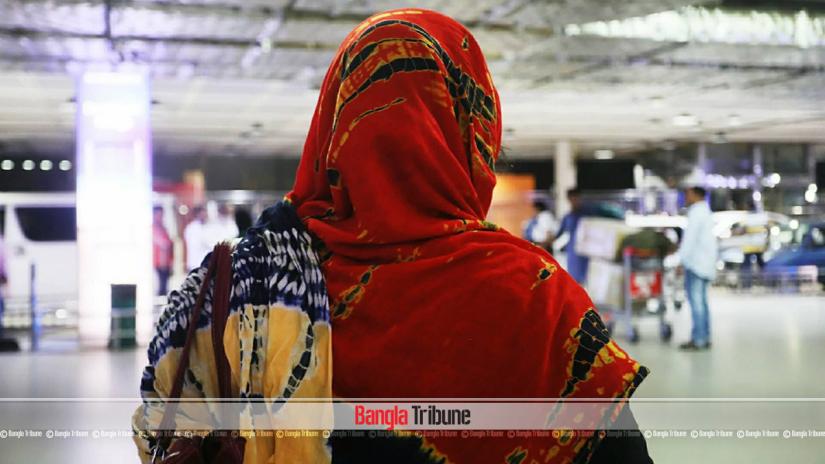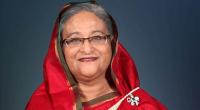 Every week, countless women are coming back to Bangladesh after facing torture and inhuman treatment in the middle-east. Many are also facing sexual harassment.
Every week, countless women are coming back to Bangladesh after facing torture and inhuman treatment in the middle-east. Many are also facing sexual harassment.
However, no legal steps are known to have been taken against recruiting agencies through which women have gone overseas and faced repression.
Shockingly, there isn’t a record of the number of women who went abroad and were victims of sexual abuse.
Relevant quarters say they are flabbergasted by the government’s apathetic nature and urged immediate remedial steps.
But, expatriates’ welfare and overseas employment minister, Nurul Islam, says: “we have taken a lot of initiatives to prevent torture.”
According to statistics of manpower training bureau, since 1999 till last August last, a total of 7,35,575 women workers went abroad.
From 2015, the number of women workers going overseas began to rise.
1,03,718 women workers went overseas in 2015 which rose to 1,18,088 in 2016 and 1,21,925 in 2017. Till August this year, 67,052 workers went abroad.
Women workers say that they face sexual torture in the middle-eastern countries topped with forced starvation and psychological abuse.
Director of recruiting agencies organization, BAIRA, Mohammad Ataur Rahman, says: “we took a lot of initiatives and our minister and DG went to Saudi Arabia where they met the Saudi authority and called for effective measures to stop mistreatment of women workers.”
According to information from BRAC and several NGOs, in the last few years, around seven thousand women came back from overseas after being victims of abuse.
Many of the returnees are deeply traumatized, the NGO reports say.
An official of the Bureau of Manpower and Training, says: “there was a moratorium on the export of manpower to several countries; Saudi Arabia opened the market on condition that against two male workers, one female worker has to be sent.”
So we are forced to send women workers, otherwise, the export of male workers will stop, added the official.
Shariful Hassan, head of BRAC’s migration division, said: “first we need to determine if we want to send our women as maids or caregivers with special training.”
“If we can train our women then we can provide employment for them within the country.”
Women are coming back but we do not see any punitive measures taken against those who flout labour laws and mistreat workers, said Shariful Hassan.
Many cannot go back to their families after they return since they carry the stigma of sexual harassment, believes specialists.
Director of Bangladesh Migrant Female Worker Association, Sumaiya Islam, says: “the government initiatives are limited and involves clauses for giving the salary of workers to banks and not use one worker for chores of several homes.”
There must be more support service from the Bangladesh embassy but nothing concrete is being done in this regard, she added.
Sumaiya also lamented the absence of a database of female workers who came back after being victims of sexual abuse.
“If this continues then the number of women going overseas will fall affecting remittance flow,” she added.


